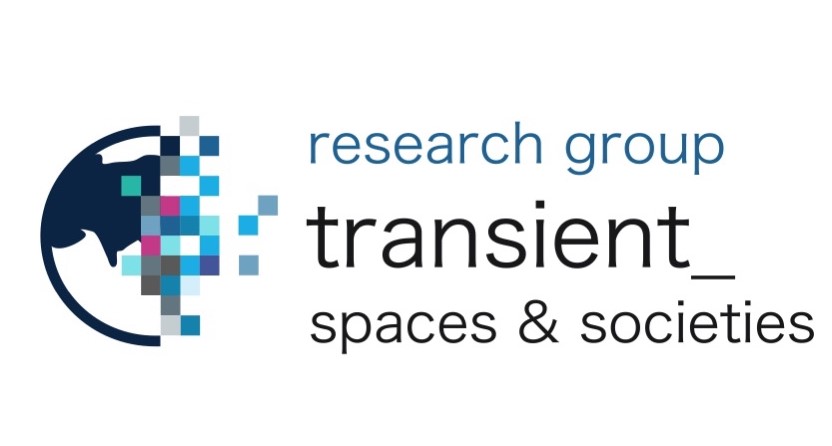Our Research at a Glance
We are researching the dialectic transitions of social, digital, and material spaces in the context of increasing digitisation, mobilities, and urbanisation. We analyse how social practices and power relations shape cities and people’s movements to and through them, as well as social inequalities, cohesion, and struggles within them.

What are Mobilities? Learn more in this video with John Urry, one of the leading authors on the mobilities paradigm.
A Quick Overview
Digitisation
Digitisation is a decisive driver of the transition of spaces and societies. We study the dialectical process of the socio-technological transition, including the effects of Augmented and Virtual Reality (AR and VR) technologies. Our conceptualisation of “cON/FFlating situational spaces and places” (Bork-Hüffer and Yeoh 2017) seeks to bridge the theoretical divide between analyses that focus solely on either online/digital or offline/physical space. cON/FFlating spaces describes the increasingly entangled, interdependent, and conflated ONline and OFFline spaces.
We are interested in how people’s interactions through and with the Internet and mobile technologies affect their throwntogetherness in space. We have looked at how encounters in cON/FFlating spaces affect people’s (re)production or refutation of prejudice and stereotypes of “others” in the context of diversity and difference. Our analyses have also stretched to include practices of combined traditional bullying and cyberbullying (cON/FFlating bullying) between young people in the context of schools. Additionally, we are engaging with how digital media’s possibilities as well as affordances are influencing people’s (mediated) sense of place, arguing that they contribute profoundly to the complexities and multifariousness of people’s perceptions of the world (Bork-Hüffer 2016).
Mobilities
Our research group analyses spatial and digital human mobilities, as well as their intersections. Core foci are the effects of spatial mobilities – in particular the translocal and transnational practices and relations of migrant subjects – on the (re)shaping of spaces and on migrants’ social resilience. Furthermore, we are looking at how the proliferation of digital media and digital mobilities are influencing migration decisions, migrants’ imaginaries, and migrants’ senses of the places they pass through or move to.
We seek thereby to bridge binaries that have divided research on migration, for example, into works that deal with either international or internal migration, permanent or temporary migration, higher- or lower-skilled types of migration, or migration according to migrants’ reasons for doing so. By adopting the term migrants in the city, we shift our attention from migrants’ varying origins, lengths of stay or distances travelled, to focus on the context of their common experience of the city, their aspirations, and the forms of organisation, agencies, and strategies they use to adapt to, create, and cope with city life. We debate the effects of migration management and policies on this process, which in the last decade, throughout our research sites in Asia and Central Europe, have become more fierce and hostile towards new arrivals in the cities.
Urbanisation
We focus on the practices and power relations from below, in-between, and above that (re)shape cities and urban spaces. We investigate the governance of urban spaces and services as well as the unequal access different people have to them. As part of this, we study how the development, transfer, and modification of urban policies, models, and symbols are moulding cities. Furthermore, we look at how digitisation is changing the perception of, interactions in, and making of urban spaces.
We seek to make contributions to theorising urbanisms in the Global South and North, based on empirically grounded fieldwork studies. We have proposed the concepts of transient urbanisms and transient urban spaces, which draw on and yet deviate from the influential approaches focusing on worlding practices, urban assemblages, and the experimental city. Transient urbanisms denotes the fluid, multi-dimensional, and -layered urbanisms from above, below, and in-between that simultaneously characterise the making of cities in the context of uneven power geometries.
Methods
Informed by an ethically reflected approach towards our subjects of research, the members of our research group apply and combine research method(ologie)s that range from more traditional qualitative and mixed methods to non-representational, mobile, and digital methods. In face of the increasing complexity in transient spaces and societies, we also contribute to methodological development, particularly with regard to AR and smartphone methods.
Regional Focus
The team’s research projects and activities comprise the following regions: Southeast and East Asia (Singapore, Malaysia, Thailand, Indonesia, China, Bangladesh), Central Europe (Austria, Germany), and the Horn of Africa (Ethiopia).
Transdisciplinary outreach, third mission, Scicomm
We engage in the co-production and transfer of knowledge in transdisciplinary research projects, with stakeholders including civil society. For us, science communication through innovative formats and digital media is both part of our lived research practice and an object of research itself.
%
... of the world's population lives in cities
© 2024
Research Group Transient Spaces & Societies
Geographisches Institut Innsbruck
Innrain 52, 6020 Innsbruck
Relevant links:



